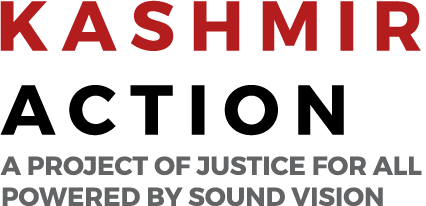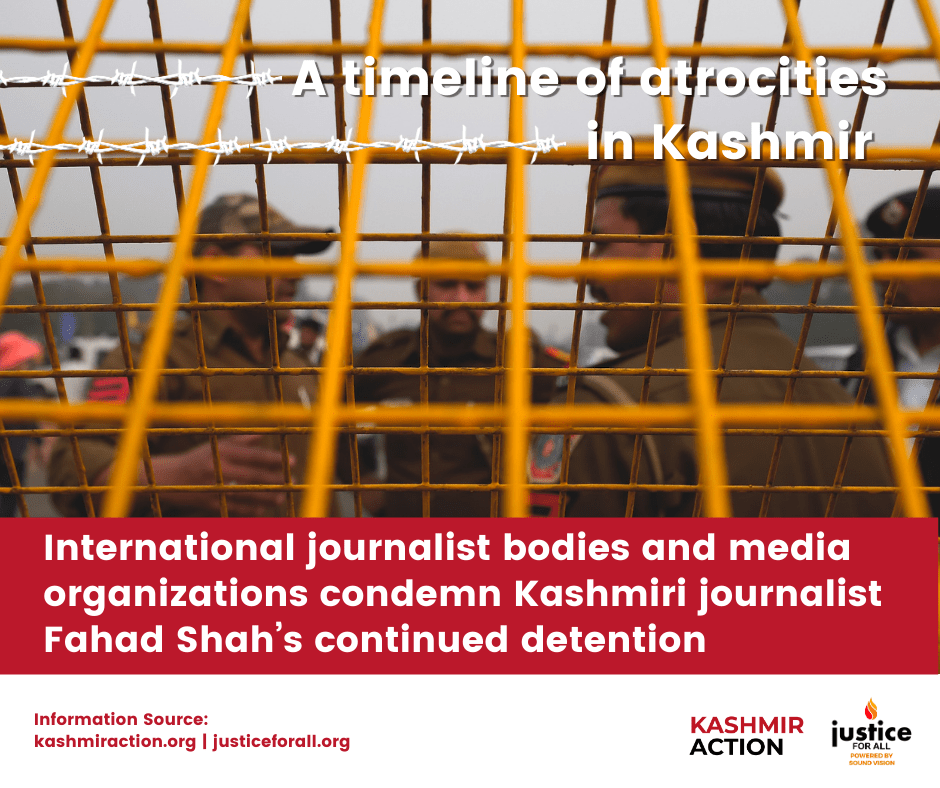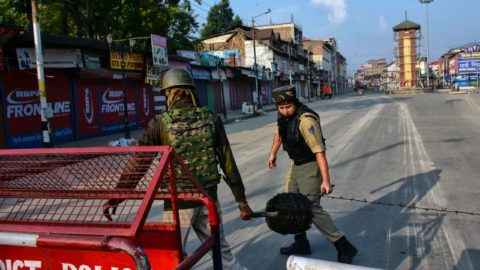On December 26, Police in Udhampur detained Abdul Qayoom, also known as Bittu, under the…
International journalist bodies and media organizations condemn Kashmiri journalist Fahad Shah’s continued detention
On February 16th, prominent international news organizations issued a statement over the prolonged illegal detention of Kashmiri journalist, Fahad Shah, who was arrested on February 04, 2022 and has been in jail ever since. The organizations in a joint statement stated that, “A full year has passed since Fahad Shah, editor of The Kashmir Walla newspaper and an internationally respected reporter with whom we have worked, was arrested on Feb. 4, 2022, in Kashmir for publishing anti-national content.”
“The Kashmir Walla, which Shah founded, elevates the voices of everyday people and stands fast against unjust laws with honest reporting. But Shah has paid a heavy price for that work. He has been granted bail repeatedly, only to be immediately rearrested,” the statement bemoaned.
“He continues to be held in a jail in Jammu, far from family and friends, under the anti-terror Unlawful Activities Prevention Act. He is facing life imprisonment if convicted,” the statement added further. “Shah’s case is a sharp reminder of the need to strengthen free voices as efforts to shut them down intensify daily around the globe. His release is particularly important to the cause of free press in Kashmir.”
The statement was put out jointly by Mark Sappenfield, Editor of The Christian Science Monitor, Ravi Agrawal, Editor-in-Chief of the Foreign Policy, Erica Berenstein, Executive Producer of News and Documentary of Insider, Dave Besseling, Longreads Editor of South China Morning Post, D D Guttenplan, Editor of The Nation, Daniel Kurtz-Phelan, Editor of Foreign Affairs, Boyoung Lim, Senior Editor of Pulitzer Center on Crisis Reporting and Katharine Viner, Editor-in-Chief of The Guardian.
Currently, three Kashmiri journalists, Fahad Shah, Asif Sultan and Sajad Gul are facing detention under various sections of India’s anti-dissent laws like the Unlawful Activities Prevention Act[8].




